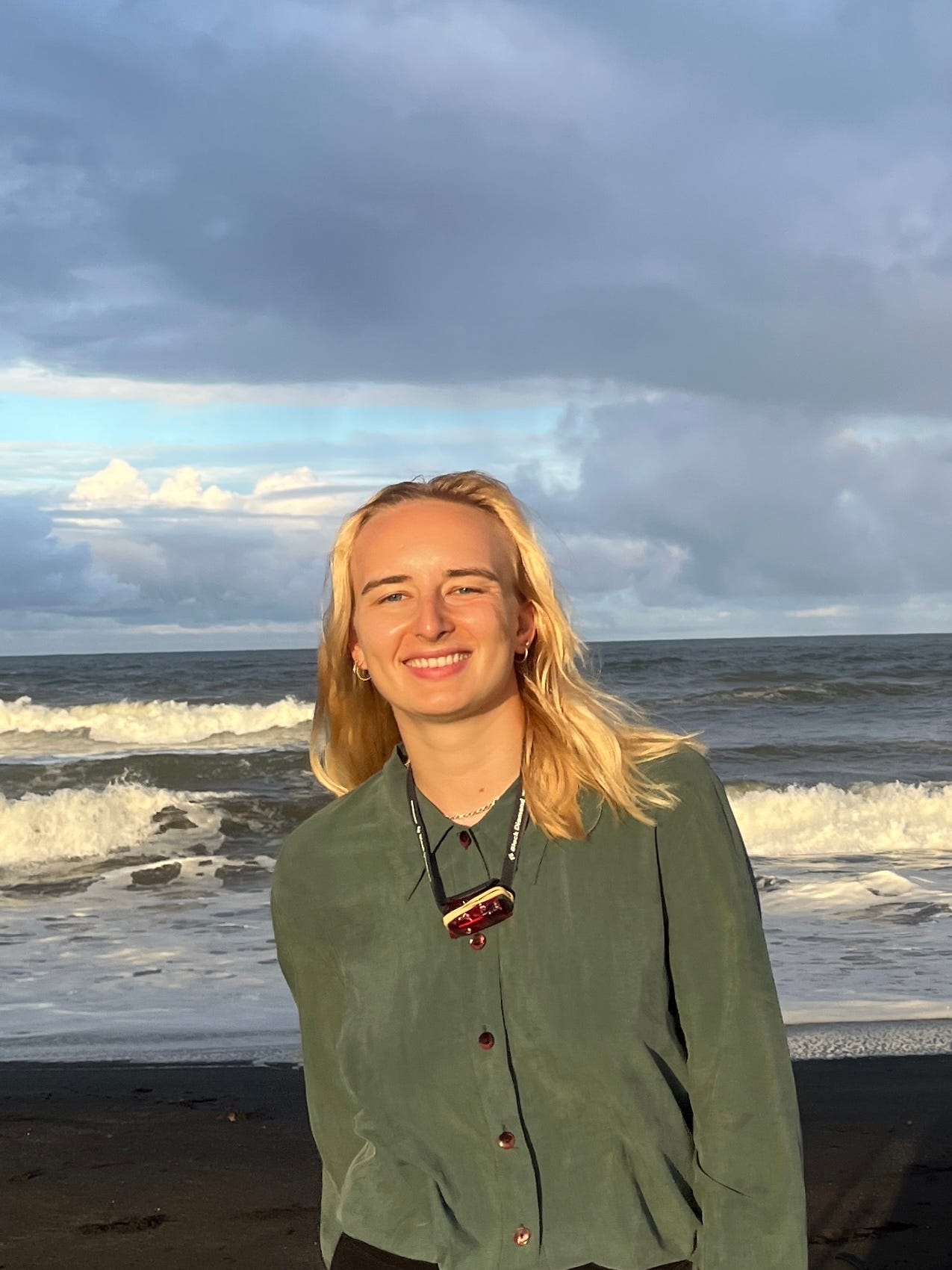Sonia Vinogradova (she/her) is a Montreal-based artist and sustainability project manager who is finding big and small ways of putting a dent in carbon emissions. Her multi-disciplinary professional and artistic projects convene stakeholders to concretely reduce pollution, increase food security, and develop renewable energy projects.
In What goes through my head as I explain my environmentalist point of view, Sonia responds to the poem “out here” by Victor Yin with a glimpse of their internal dialogue.
I don’t understand how people ignore how their actions affect others. We have different priorities, I know. Convenience wins out - but it’s convenient to think of others, no? People pay it back, you feel good, you know. “People don’t think outside of themselves, usually” -- the common response. I know that just knowing something is a problem doesn’t make people take action either. How have we created a system of exploitation and just let it go on? Am I speaking from a high horse when I criticize capitalism like that? Am I part of the privileged elite that has turned climate action into buying expensive organic goji berries? No, no I’m not. God I hate when people make environmentalism an elitist idea. People get all flustered that there are other problems to attend to. But, they are being attended to? Healthcare, education, unemployment. Are you saying that social problems can only be resolved with some limited amount of money created by the problem-makers? That we have to choose one problem at a time? That the authors of this moral and social problem get to keep holding the pen? Are you going to continue spitting news headlines at me? I will answer them, with patience. I want to listen to you, just as I hope you listen to me. I won't be scared by the scary things you have read. I'm not going anywhere. I'll listen. We can blame other countries, other industries, other people all we want. I hope every country, industry, and person finds their ways of respecting the environment. I try to do what I can, what is in my control. What is in our control? Environmentalism is not one size fits all. The blame game of responsibility for the problem is exhausting. Have you ever seen an argument resolve because they figured out which side is to blame? We’re trying, we’re trying to reconcile our differences with non-environmentalists. We’re learning to speak the language of finance, of law, of politics, of economics, of pop culture. Most of us are multi-lingual at this point. These types of conversations are what build environmental awareness. The patience and the respect for one another - are values environmentalists must hold strong to. Keep the tough conversations going.
From the poet
The climate crisis asks us to rethink how we organize society—namely, what is the next iteration after capitalism? How do we heal the scars of colonialism? In this process of rethinking, parts of society that we identify with come under the microscope. Just like going to the doctor or getting feedback from a boss, we don't like when parts of us are questioned, inspected, and discussed. From this point of view, I focus my creative environmental work on that conflicting feeling of imagining a more equitable world, while having to recognize aspects of your own identity that do not align with your vision. Discussing this contradictory feeling is pivotal in understanding the climate crisis beyond reports and indicators. As feudalism changed into capitalism, a trace of the true self remained in the false self. As we move on from GDP as an indicator of progress, a trace of it will remain in the next iteration. Change is not as black and white as a company rebrand, and I focus on this concept in my work.
Sonia’s LinkedIn | Spark Source Consulting
Make it personal
What kind of conversations do you think are missing right now?
rerooting, rerouting is sword fern collective’s online publication on climate emotions. Submit a piece




